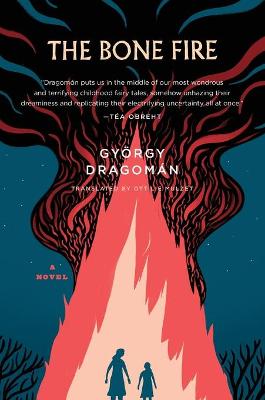'The Bone Fire' by György Dragomán is a tale set in an unnamed Eastern European city, in a country where their oppressive regime has recently been toppled. After the loss of her parents to a car accident, a young girl named Emma ends up living in an orphanage until she's adopted by a grandmother she doesn't know.
Bitterly divided by the revolution, Emma begins to learn the ways of her new grandmother who can read fortunes, heal or inflict pain, and more. Though she uses magic in her day-to-day life and the ghost of her dead husband still resides at home, these aren't the main reasons she's treated with suspicion and contempt by the townspeople. They believe her and her husband to be traitorous informers.
This story is a mixture of magical realism and sort of a modern Jacobin novel. While the story is wrapped in what feels like an old fairy tale, it strives to discuss some very heavy topics. Though they can easily be applied to certain things going on right now, the author has given them some distance by writing it as if it's taking place 40 years ago or so.
Though there isn't a lot of plot here, I don't feel like that's the point. Instead, Dragomán allows us to experience the lives of these characters unfettered by jumping them through hoops to get to a specific point, which is not to say their lives are uneventful. In fact, there are some extremely memorable moments throughout the book that seem to help define the world they live in while shaping their world view.
Centered in and around the fall of the Communist rule of Transylvania, the author spends most of his time focusing on the changes brought about by the revolution and the fall itself, without ever calling direct attention to the area.
If there was ever a book that was a structural parallel to Stanley Kubrick's film, 2001: A Space Odyssey, this is it. Painted in a stiff prose that feels both representative of the cooler Eastern European language style and the rather harsh setting the characters live within, the book moves slowly through the day-to-day. There's no glossing over the more mundane details to hurry to a plot point or steer the narrative. Those details seem to actually be the narrative.
While that style is not for me, it's hard not to admire the patience and artistry within these pages.
On a side note, some of the witchy scenes are really fun and carry a sense of dark connotation that I genuinely enjoyed. My favorite was actually early in the novel with some musicians, while Emma and her grandmother were on the train bound for home.
(I received this title as an ARC. All opinions are mine and freely given.)
